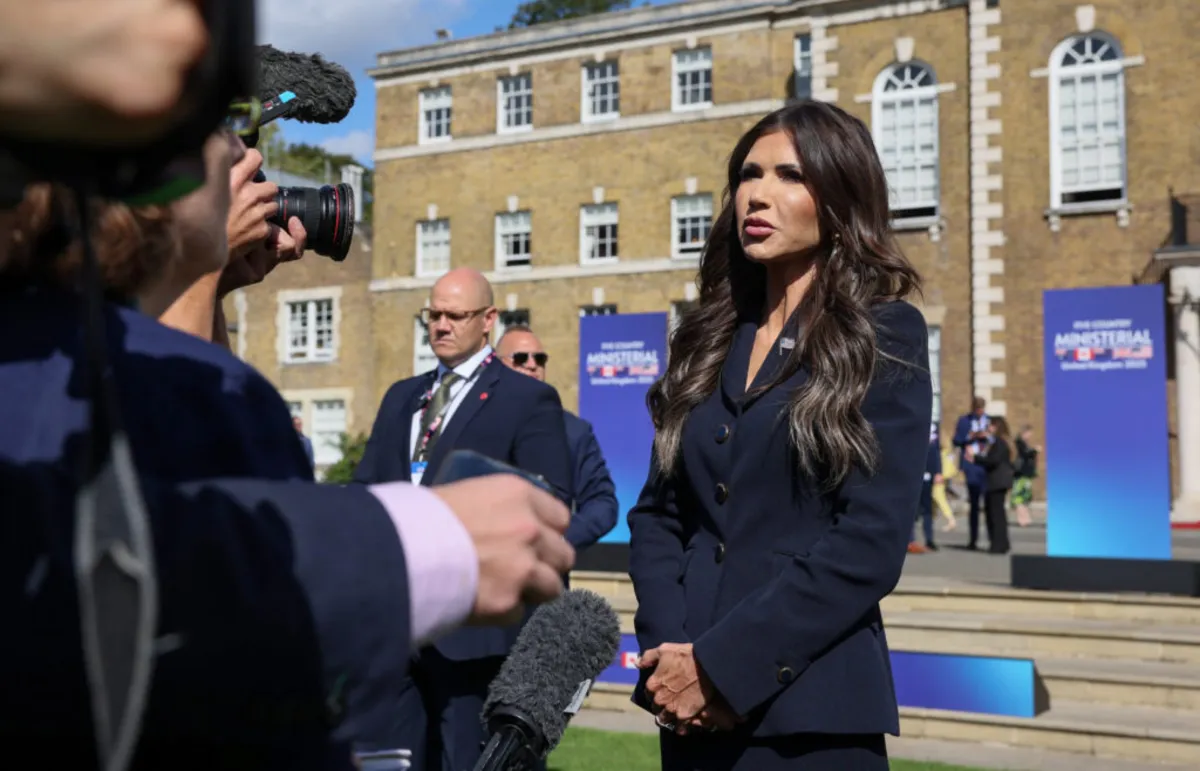
In a recent statement in London, U.S. Homeland Security Secretary Kristi Noem expressed her confidence that the recent detention of hundreds of South Korean workers during an immigration raid at a Hyundai plant in Georgia would not hinder foreign investment in the United States. Noem emphasized that the decisive actions taken by the Trump administration reflect a clear stance on immigration policies, removing any uncertainty for potential investors.
The immigration raid, which occurred on September 4, resulted in the detention of 475 workers, with over 300 of them being South Korean nationals. This unexpected operation has led to feelings of confusion, shock, and betrayal among the South Korean community, which is a key ally of the United States. During a meeting with ministers from the Five Eyes intelligence-sharing partnership, Noem characterized this as an opportunity to clarify the rules for foreign companies looking to invest in the U.S.
Noem reassured companies that investing in the United States comes with a guarantee of transparency regarding immigration laws. She stated, “We’re encouraging all companies who want to come to the United States and help our economy and employ people, that we encourage them to employ U.S. citizens and to bring people to our country that want to follow our laws and work here the right way.” This clarion call aims to foster a business-friendly environment while ensuring compliance with U.S. immigration regulations.
Regarding the detained South Koreans, Noem indicated that most would face deportation due to prior removal orders, while a few would confront legal consequences for engaging in criminal activities. This aspect of the raid highlights the administration's commitment to enforcing immigration laws rigorously.
The meeting in London also included newly appointed U.K. Home Secretary Shabana Mahmood and ministers from Canada, Australia, and New Zealand. They convened at the historic headquarters of the Honourable Artillery Company to discuss strategies for combating unauthorized migration, child sexual exploitation, and the proliferation of opioid use. Mahmood noted that the ministers would work together to implement new measures aimed at enhancing border security and combating human trafficking.
The Trump administration's approach to immigration, characterized by street raids and mass detentions, has faced significant backlash both domestically and internationally. Critics have raised concerns about the ethical implications of such strict measures. However, Noem defended these actions, stating that sharing these tough measures can inspire other nations to adopt similar policies.
Noem also addressed rumors regarding a proposed expansion of immigration raids and the deployment of the National Guard in Chicago, which has faced local opposition. She clarified, “Nothing’s on hold. Everything is full speed ahead,” asserting that the administration would continue its operations as necessary to maintain national security.
Amid these discussions, the U.K. government, led by the center-left Labour party, is grappling with the rising number of migrants crossing the English Channel in small boats. With approximately 30,000 migrants having made the crossing this year alone, the government faces pressure to take more decisive action. While opposition parties have suggested leaving the European Convention on Human Rights to facilitate stricter measures, the government has opted to explore alternative interpretations of the convention within British law.
In her comments, Mahmood also hinted at the possibility of suspending visa issuance to countries that refuse to accept their citizens who have no legal right to remain in the U.K. Although she did not specify which countries this might affect, she emphasized the importance of international cooperation in managing migration effectively, stating, “We do expect countries to play ball, play by the rules.”
The ongoing discussions among the Five Eyes partners underscore the complexities of handling immigration and border security in an increasingly interconnected world, where nations must balance humanitarian concerns with national interests.